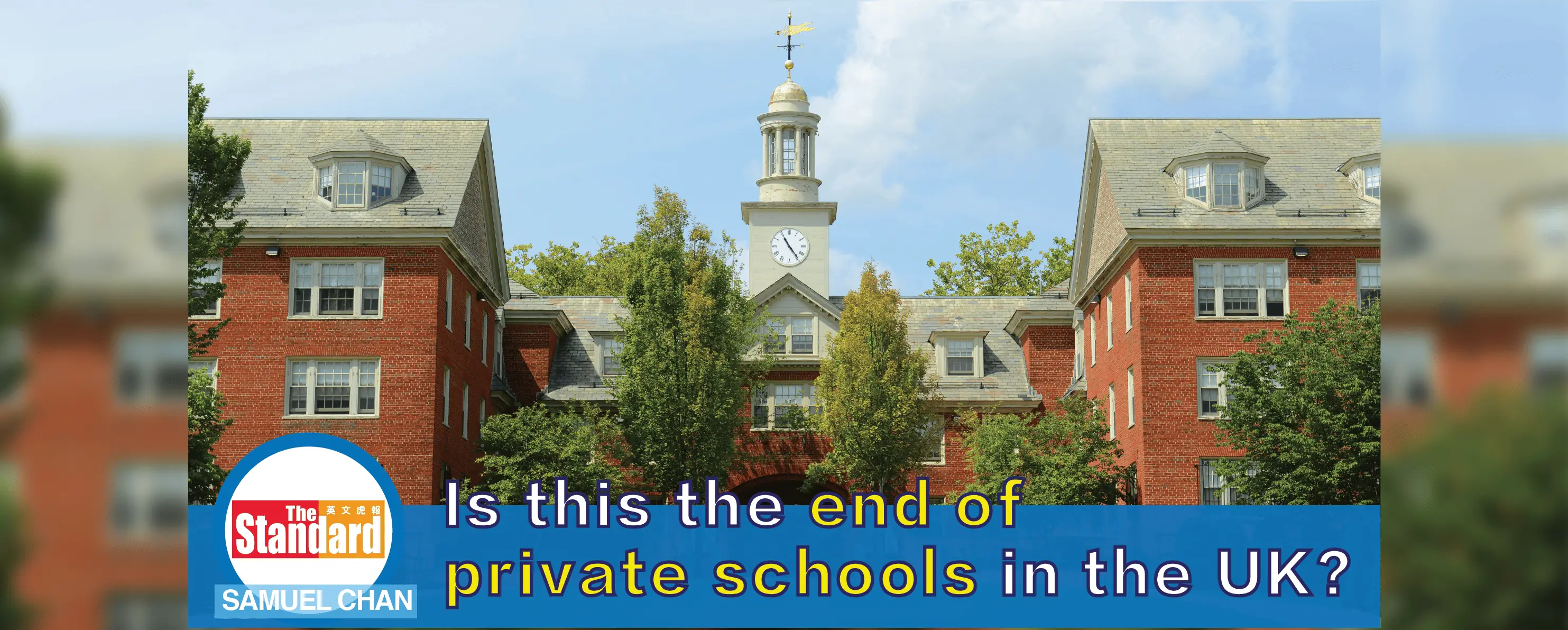Those who follow the political news in the UK will have noticed something extraordinary recently.
Apart from the headlines about Brexit developments, the Labour party dropped a bombshell at this year’s annual conference.
As The Guardian reported: “Delegates voted in favour of a radical set of policies that would abolish private schools by removing their charitable status and redistributing their endowments, investments and properties to the state sector. Labour also wants to limit the number of privately educated students at university.”
As a Hongkonger who was lucky enough to have had a wonderful education at a private boarding school in the UK, this report shocked me.
And, of course, as someone whose life and business is all about helping Asian students get into private schools in Britain so they too can benefit from a world-class education, I find this news to be highly disturbing.
I should make it clear that the Labour Party is not currently in power and that these are not plans that are definitely going to happen.
But, with such political uncertainty in Britain at the moment because of Brexit, it is very hard to know what will happen in the future.
Private schools go back over 500 years in British history. Big names such as Eton College, Harrow, Uppingham and Repton are part of British culture. They are in the country’s DNA.
Parents in Hong Kong have for a long time revered this tradition. They have sought to send their children to Britain to have their minds and characters molded by these schools.
The popularity of a British education for Asian families is now greater than ever – particularly in Hong Kong because of the political situation here.
So why does the Labour Party want to do this? What on earth is their motivation?
Well, as a left-wing political party, Labour is against anything that might be conceived as elitism and anything remotely suggestive of British aristocracy and old-fashioned privilege. This comes through in what they do, in both big and small ways.
Years ago, for example, Labour prime minister Tony Blair tried to mask his social background.
He shortened his name from Anthony to Tony – a less posh sounding version of his name. He altered his accent to sound less well-educated and he certainly didn’t dwell on the fact that he had attended Fettes College, a famous and expensive private boarding school in Scotland.
There is still the same sort of trivial thinking going on today. Labour does not recognize British private schools as world-class institutions that equip students for life like nowhere else on earth.
They see them instead as a primary source of social division in Britain and the cause of so many of its inequalities and problems. They confuse old-fashioned stereotypes of public schools and snobbery with today’s reality: a group of modern, private schools with enlightened, forward-thinking educational programs that take students from a wide range of social backgrounds and equip them to achieve amazing things in life.
By taking the class struggle from the university level to secondary schools, the Labour Party is being incredibly short-sighted.
From an international perspective, if British private schools suffer political persecution, international students – not only from Asia and Hong Kong but all over the world – will simply look elsewhere.
They will turn instead to Switzerland, Germany, and even the United States, where private boarding schools are not suppressed.
For the time being, however, British private schools are still world-class institutions.
They are increasingly popular with Asian parents looking to give their children the best possible start in life and I hope this tradition may long continue.

